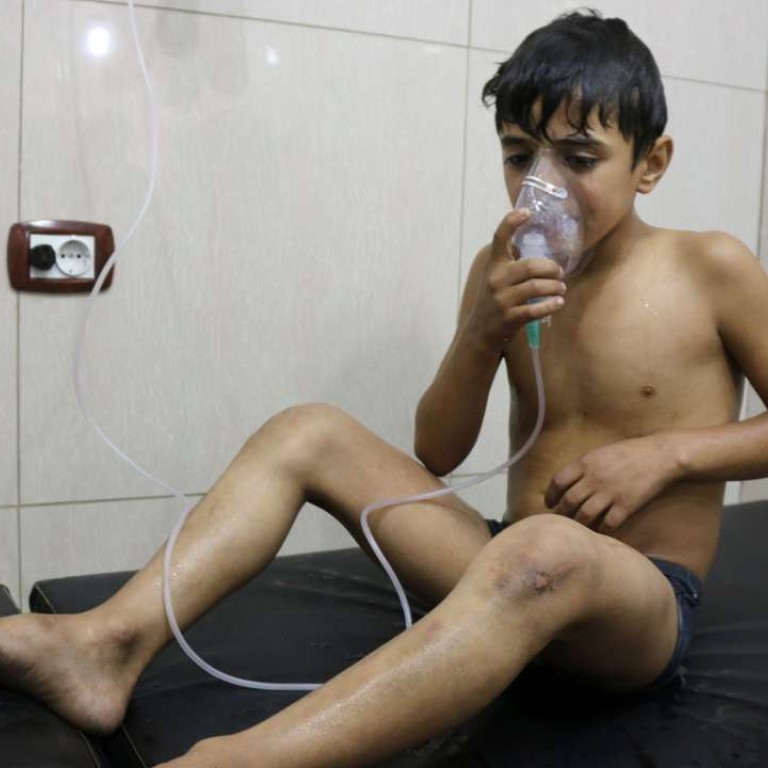
Besieged Aleppo residents say government bombed them with chlorine gas
The Syrian government has dropped a bomb containing chlorine on a besieged neighbourhood in the city of Aleppo, heightening fears among people who are cut off from the outside world and unable to escape, according to residents and hospitals in the area.
The attack came on Tuesday as Syrian government loyalists battled to consolidate their hold over what had been the last rebel supply line into the opposition-held east of the city, after the capture of the route on Sunday.
The outcome of the battle meant that eastern Aleppo is now completely besieged for a second time in two months, and coincided with the failure of talks between the United States and Russia for a cease-fire deal in the contested city.

“There was no trace of shrapnel or gaping wounds or anything like that, which I thought was odd,” he said. “They were just coughing intensely and having trouble breathing, and there was this smell as if a swimming pool had exploded in the area.”
The White Helmets civil defence units said a total of 120 people were hospitalised and posted a video showing coughing people and children being administered oxygen at one of the local hospitals.
A statement from the al-Quds hospital, which received 46 of the patients, said that all were suffering from breathing difficulties and “a strong smell of chlorine emanated from their clothes.”
The use of chlorine as a weapon of war is banned under international conventions. Yet despite repeated appeals from the United Nations and other members of the international community, the Syrian government continues to use it on a regular basis, as a supplement to the other weapons it deploys in pursuit of its effort to crush the five-year-old rebellion against President Bashar Assad.


“I saw the horror of all the people. Everyone was scared,” said Abdulkafi Hamdo, an Aleppo activist who arrived in the area shortly after the attack. “They were shocked. They don’t know what to do. ‘It’s chlorine,’ they were saying. ‘What will they use after this?’ ”

The US-Russian negotiations have focused on securing a cease-fire around Aleppo and the delivery of humanitarian aid to civilians, along the route that was captured by the government on Sunday.
US officials have said they plan to keep talking to Russia and are still hopeful they can secure a deal. But now that the Syrian government has succeeded in surrounding Aleppo entirely, it is unclear whether the forces loyal to Assad would be prepared to accept terms that would impede their ability to continue to attack the rebels, even if the United States and Russia were to agree.
Also on Tuesday, the Turkish government said that two Turkish soldiers were killed and five were injured in an attack by the Islamic State on two Turkish tanks in northern Syria. They were the first casualties inflicted by the Islamic State since Turkey dispatched troops and tanks to the area.

